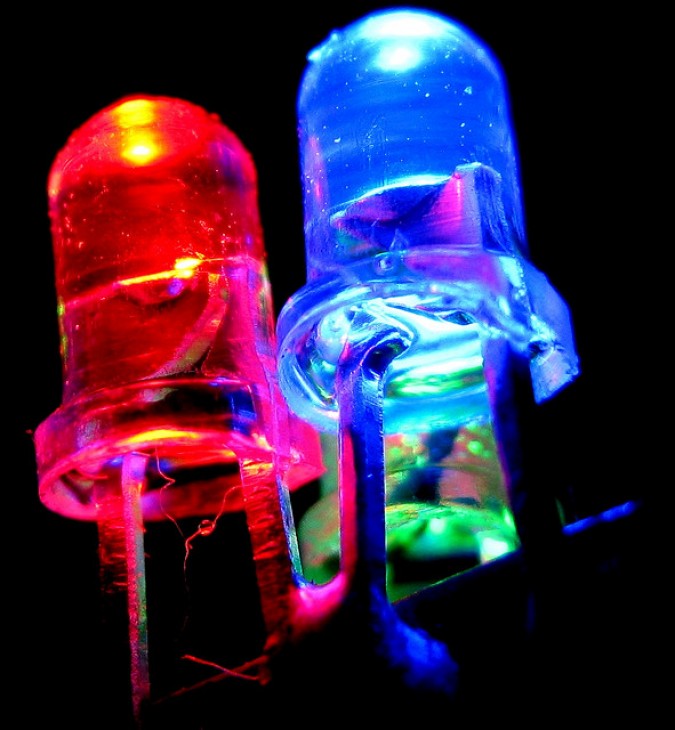Archive for the ‘audio recorders’ tag
Apple patent pending for technology to block live event video capture
According to this Fox News story New Apple Technology Stops iPhones From Filming Live Events, Apple has filed a patent on technology to make it impossible to capture live video at protected live events.
The Fox News article explains the technology in a way that doesn’t make sense to me. I think what the article should have said is:
“A light emitting (LED) diode on stage at an event can blink in such a way as to alert the iPhone camera that recording is not allowed. The LED can emit invisible infrared radiation, so the audience won’t notice any difference in the event with their eyes.”
I am very suspicious of the Fox News technology explanation that says the iPhone will emit radiation that infrared sensors on stage will capture and react to. I think that’s implausible, because the iPhone would have to have a strong infrared LED in it, and over time that would diminish battery life. Also, it would mean the system would not work at long distances, such as stadium shows where the videographer might be a city block away. I don’t think LED remotes work over that distance. But a powerful infrared LED on stage could signal all the iPhones in the venue, and power usage wouldn’t be an issue because that LED could be plugged into AC power.
However it works, I applaud Apple for thinking their idea up. It’s a good and clever idea. I wish I had thought of it.
I think Apple could and should take this idea a few logical steps forward. Perhaps they have developed these plans but have not yet publicized them. I will detail my plans here, and if Apple should want to use them and they haven’t thought of them already, they can credit me and send me a new iPhone for life, as compensation.
1. Apple should not disable the capture of video. Instead it should offer to sell the user the ability to capture that event for a price, charged right there using Apple’s ‘in app’ purchase mechanism. This fee can be split with the venue and performer(s), using the same 70%/30% split people hate and love, respectively. The artists hate it and Apple loves it, I suspect. The video recorded should contain the serial number of the phone embedded into the video image in a way that is not visible to the eye but can be easily read by software. Then, if the video is posted online publicly, that user can be tracked down and charged more, perhaps even a lot more, to discourage them from doing it again. To make the serial number unremovable, it could float around the image from frame to frame, and change size and font. To take it out would take so much work as to be impractical.
2. Apple should apply this feature to all controlled access events, not just live events. Thus, this technology could be used in movie theatres to make it impossible to bootleg a movie being projected on screen. The phone could display a message offering the user the chance to buy the DVD and have it delivered the day it goes on sale, for example. It could offer the eager potential bootlegger the opportunity to ‘Like’ the movie on Facebook, building on the fan’s just demonstrated enthusiasm for the movie. Apple should resist any temptation to use the video attempt to turn the person over to the police, which it could do by having that phone call the police and use a recorded message to alert them that a Federal crime is in progress. Convicting fans is not good policy. Selling movies and related merchandise to avid fans is good policy.
3. Building on the last point, this technology could be used to prohibit video recording in airports, on nude beaches (with really bright LEDs on posts?), in bathrooms, locker rooms and even in private homes. If Apple’s technology could get incorporated into all video cameras, celebrities might worry a little less about being surreptitiously recorded in a compromising position.
While writing this post, it occurred to me that all audio recorders could incorporate similar technology, with similar benefits, as follows:
The audio feed for an event could contain an inaudible signal that the recorder could decode and act upon. The device could offer to permit recording for a fee, and the serial number of the device could be embedded inaudibly into the stream, to guard against public distribution. Or, for simpler devices like dictation recorders, the device could simply refuse to record.
This is generally how the old MacroVision anti piracy technology for VHS video tapes worked. A signal on the original didn’t disturb the picture when played back. But if you tried to record the signal to another VCR, that VCR would react to the signal and degrade the copy so much it was valueless.

